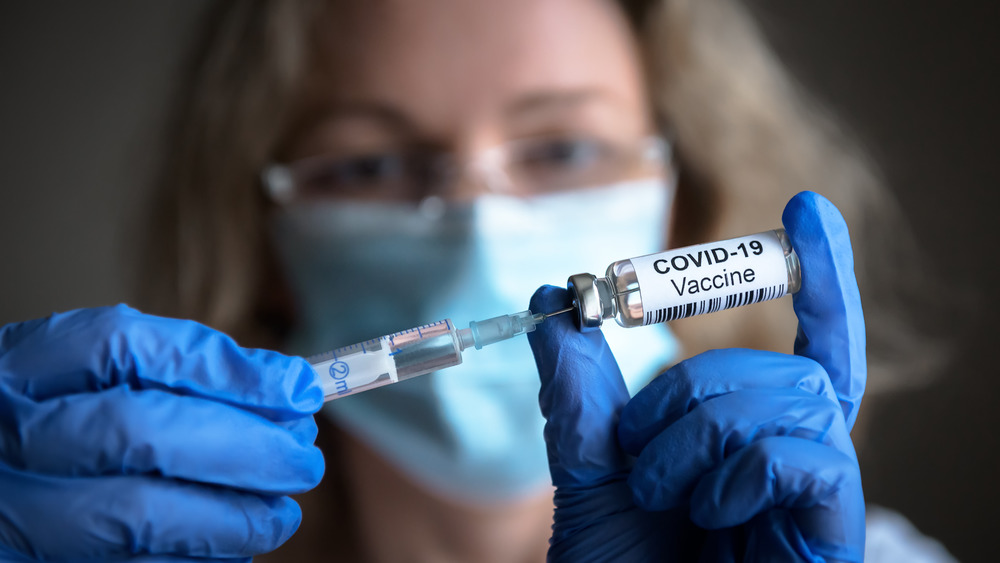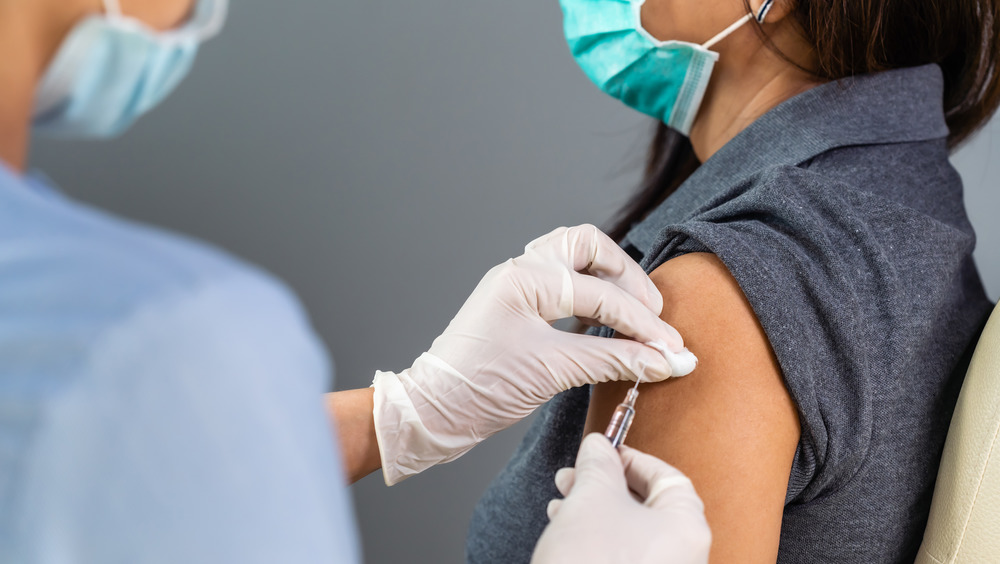The Real Reason Women May Have More COVID Vaccine Side Effects
Have you or someone you know experienced side effects from the COVID-19 vaccine? Experts say the likelihood of experiencing symptoms could partly be due to your gender.
The Centers for Disease Control and Prevention (CDC) reports that out of 13.8 million COVID-19 vaccinations, 79 percent of those who reported experiencing side effects were women. Women also made up 61 percent of the total number of Americans vaccinated.
It is important to note that although women may report experiencing side effects to the COVID-19 vaccine more frequently, it is still recommended to get vaccinated. Experts say the disease itself is worse than the symptoms, according to Healthline.
So why do women seem to be more affected by the vaccine? It could be the hormonal differences between men and women. Experts tell Healthline that the estrogen levels in premenopausal women quickly activate their immune system's response to illnesses and in this case, vaccines.
Conversely, the testosterone level in men can slow down the immune system response, according to Healthline. Similar findings were also reported in studies about influenza, yellow fever, and DPT vaccines.
More research on vaccine symptoms is needed
While the current research points to more women reporting side effects from the vaccine, some infectious disease experts say that more information is needed to fully understand the reasoning. Experts tell Health that it could simply be because women are more likely than men to report their symptoms, or that the vaccine response rate is linked to women's ability to metabolize drugs at a faster rate.
Possible side effects of the COVID-19 vaccine are pain, redness, and swelling at the shot site, as well as chills, fever, headache, muscle pain, nausea, and tiredness throughout your body (via the CDC). These can be treated by over-the-counter medication like ibuprofen, antihistamines or acetaminophen after vaccination.
As previously stated, experts say the stronger immune system response to the vaccine and temporary symptoms should not deter you from being vaccinated. Instead, knowing the potential symptoms can help you be aware and prepare for treatment.
If symptoms do not subside, the CDC recommends contacting your doctor or healthcare provider. If you experience severe side effects, call 911 for immediate medical care.


